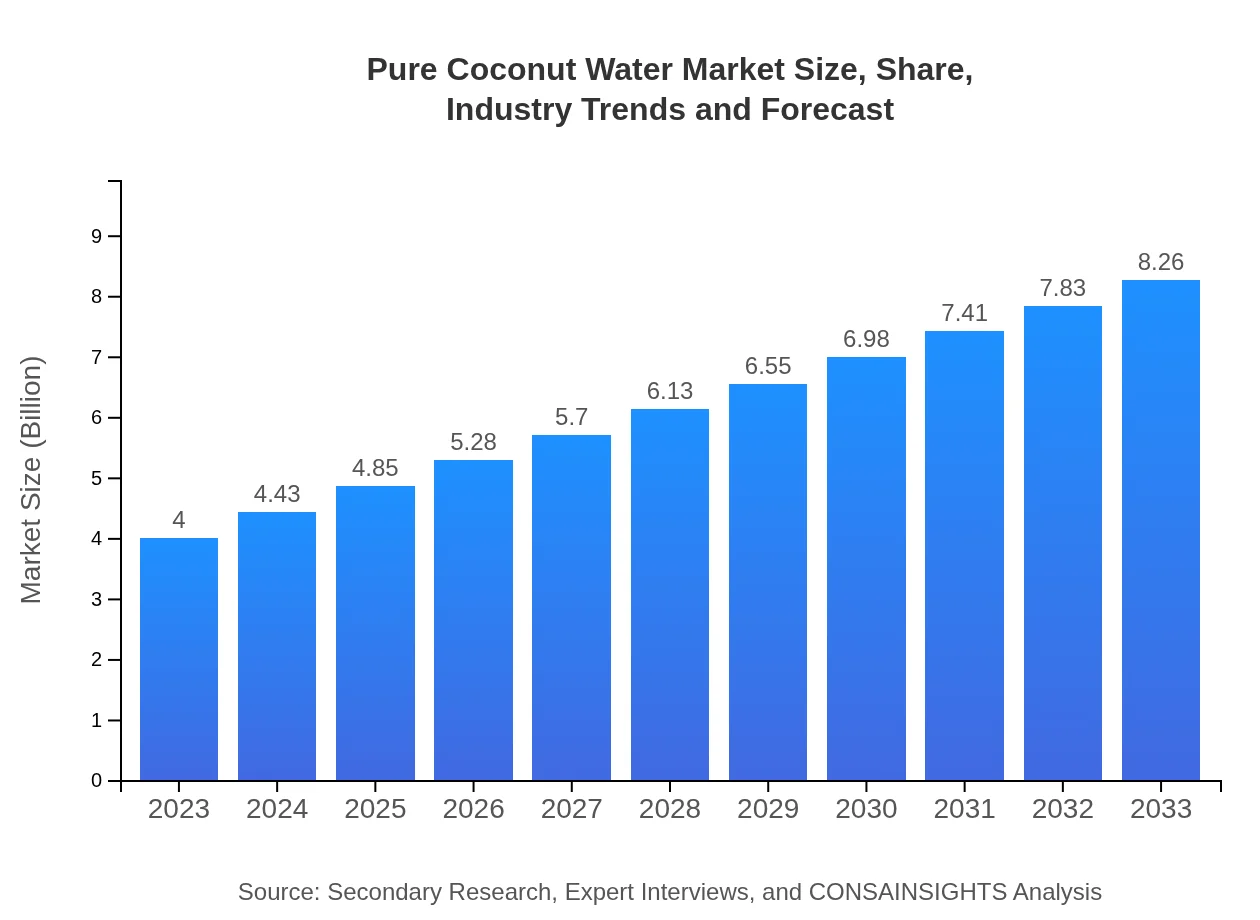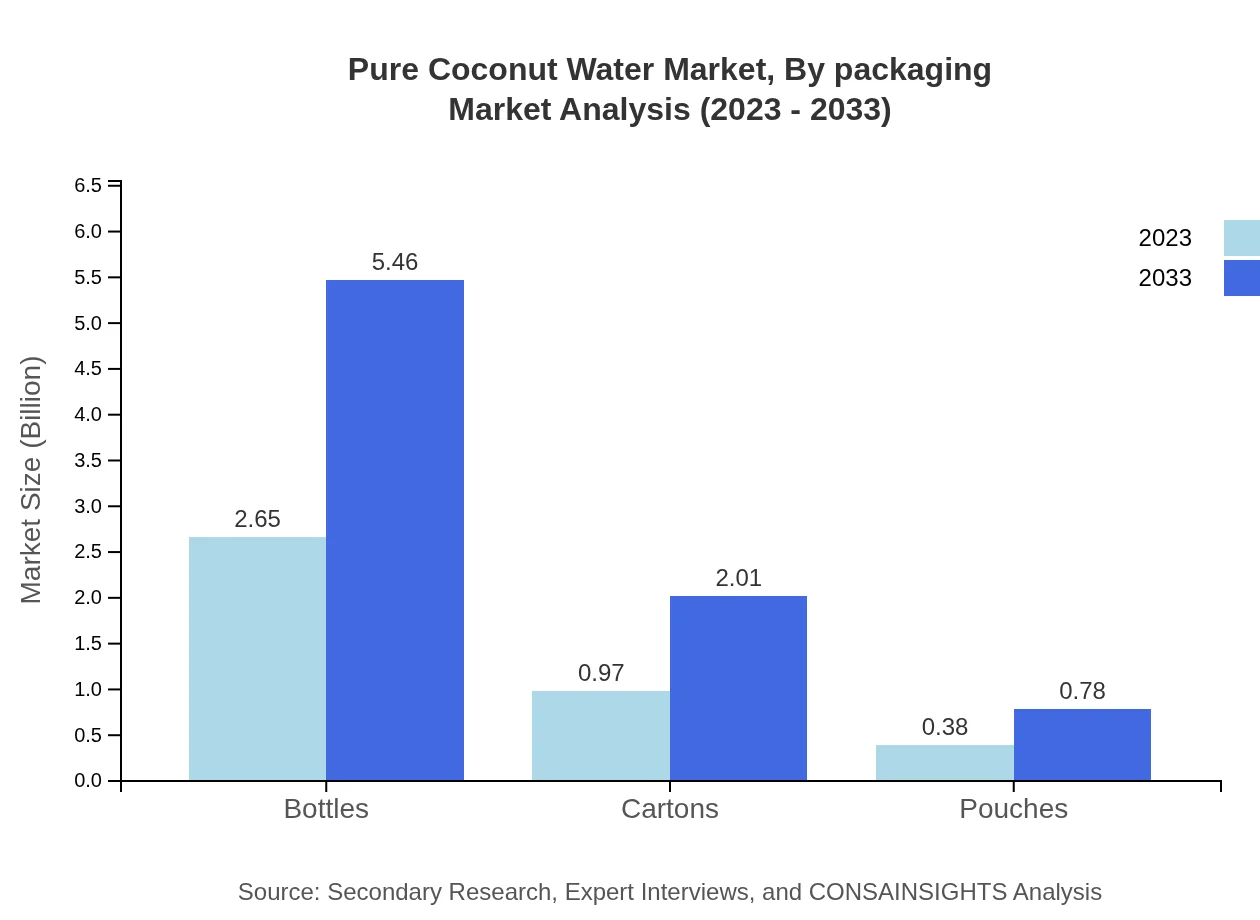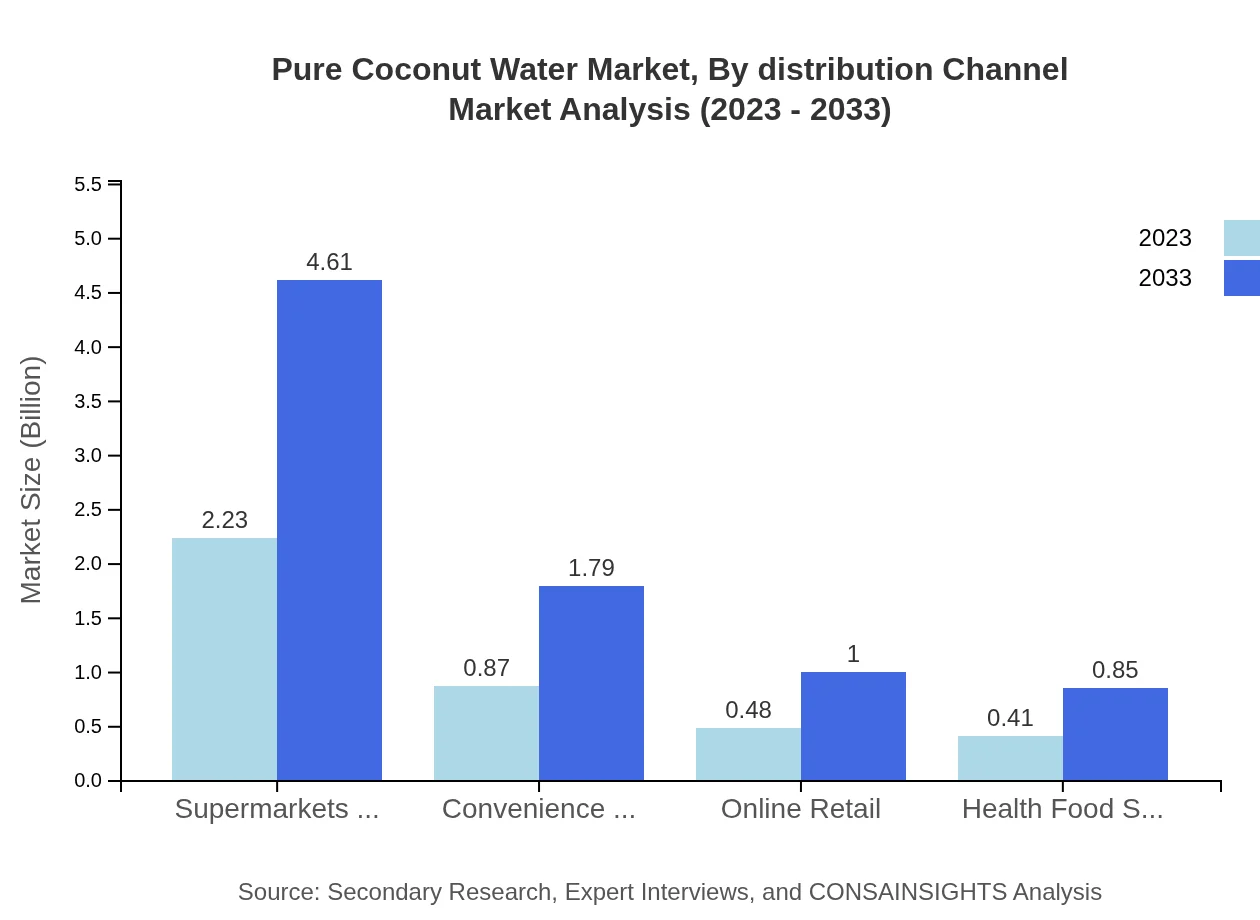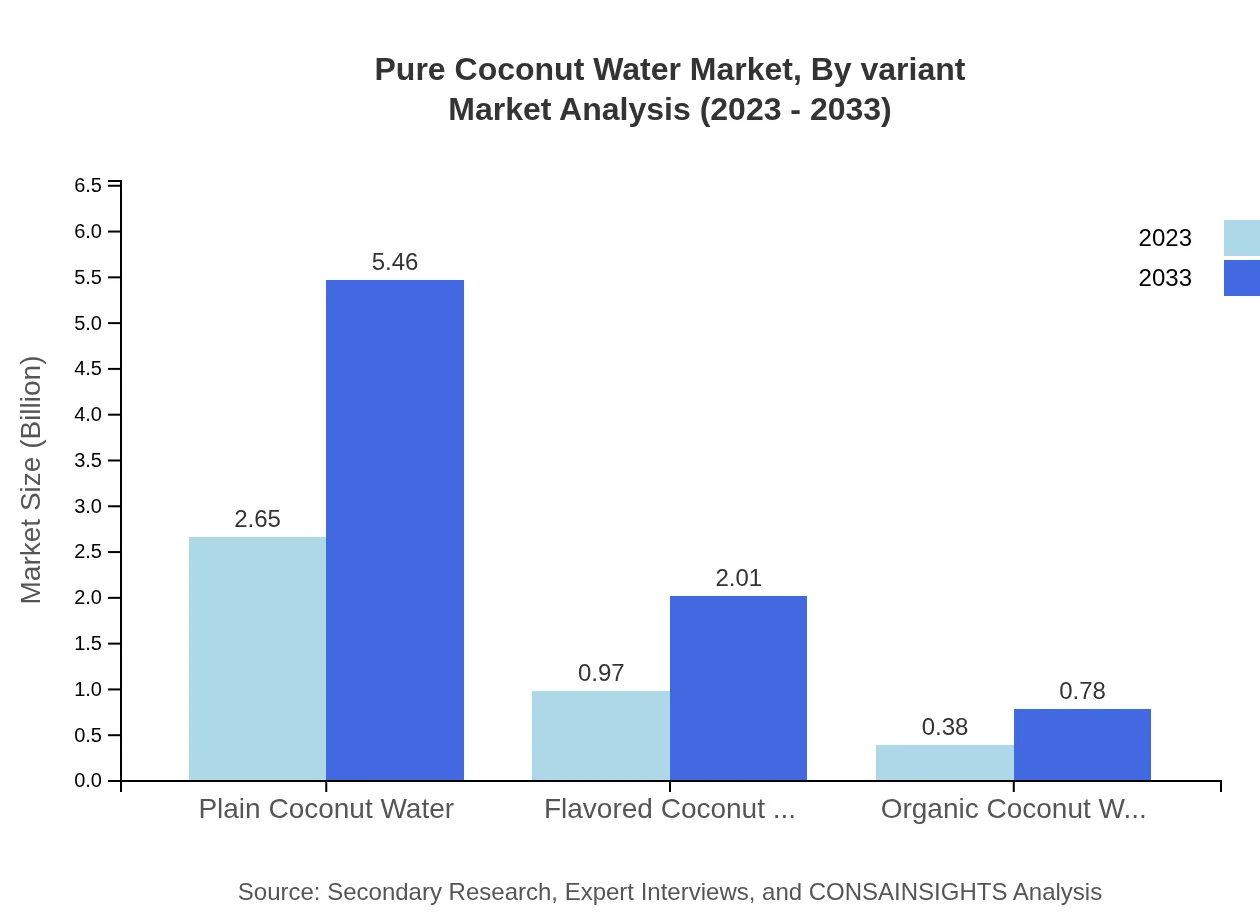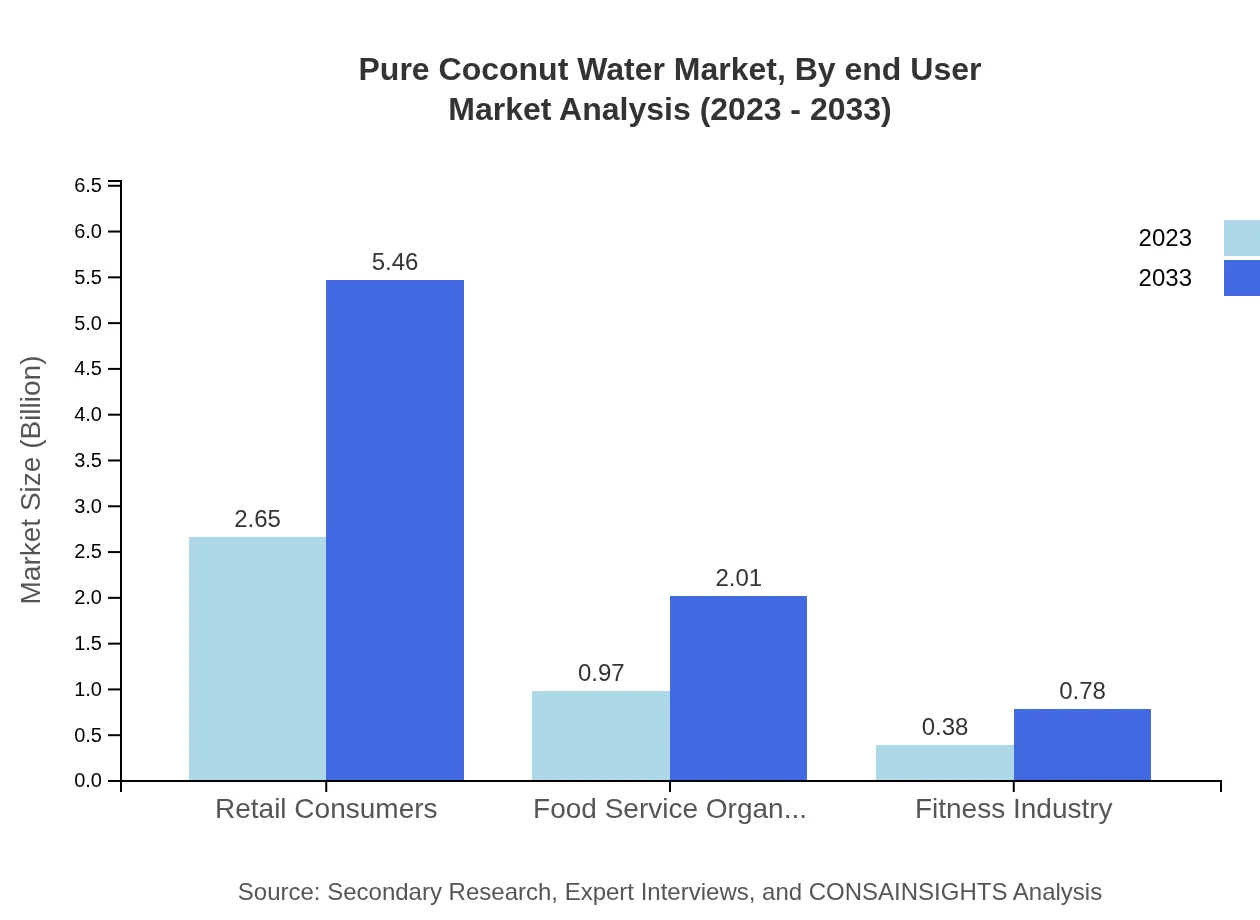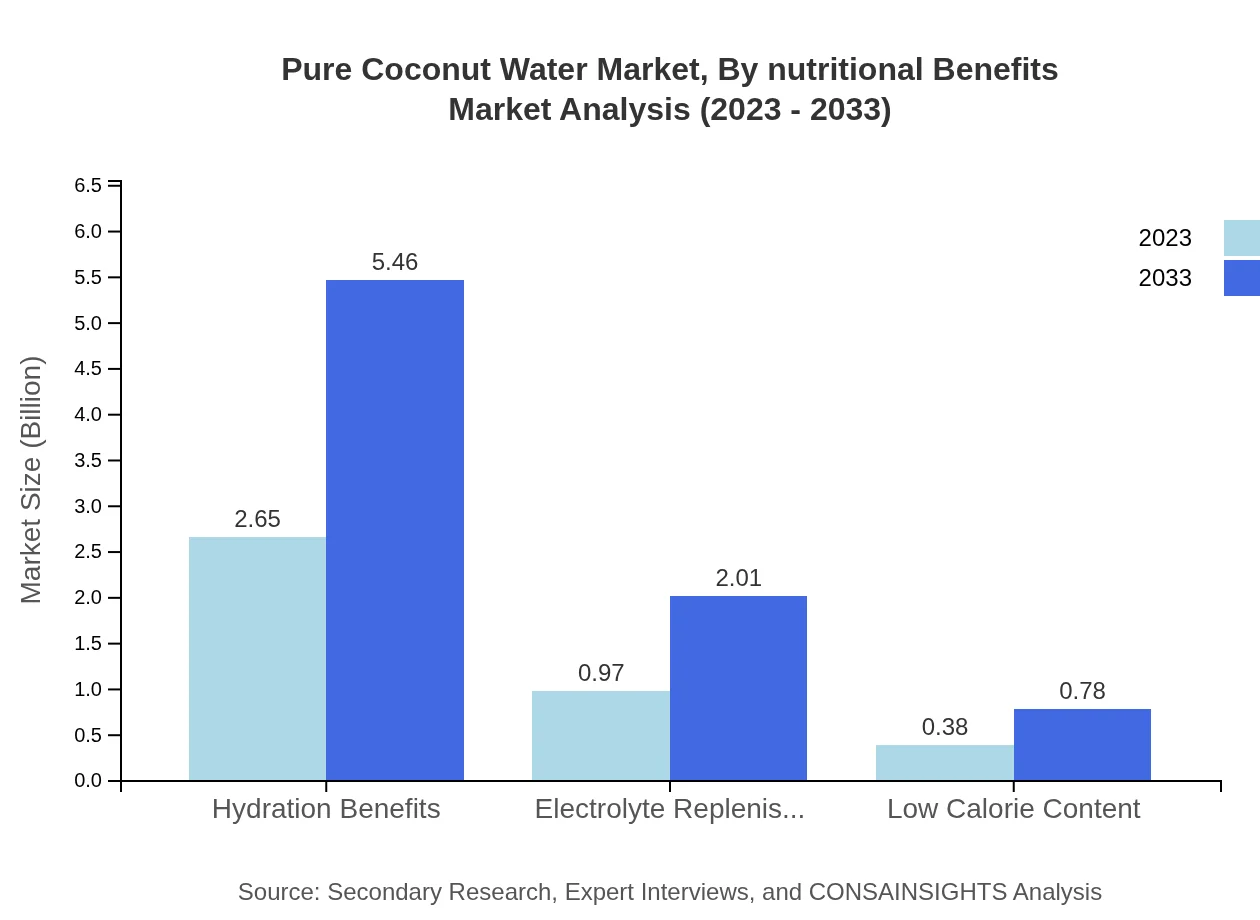Pure Coconut Water Market Report
Published Date: 31 January 2026 | Report Code: pure-coconut-water
Pure Coconut Water Market Size, Share, Industry Trends and Forecast to 2033
This report explores the global Pure Coconut Water market, examining key insights, market trends, sizes, and forecasts from 2023 to 2033. It covers industry dynamics, regional analysis, and key competitors, offering a comprehensive understanding of the market landscape.
| Metric | Value |
|---|---|
| Study Period | 2023 - 2033 |
| 2023 Market Size | $4.00 Billion |
| CAGR (2023-2033) | 7.3% |
| 2033 Market Size | $8.26 Billion |
| Top Companies | Vita Coconut, Coco Joy, Zico Coconut Water, Taste Nirvana, Harmless Harvest |
| Last Modified Date | 31 January 2026 |
Pure Coconut Water Market Overview
Customize Pure Coconut Water Market Report market research report
- ✔ Get in-depth analysis of Pure Coconut Water market size, growth, and forecasts.
- ✔ Understand Pure Coconut Water's regional dynamics and industry-specific trends.
- ✔ Identify potential applications, end-user demand, and growth segments in Pure Coconut Water
What is the Market Size & CAGR of Pure Coconut Water market in 2023?
Pure Coconut Water Industry Analysis
Pure Coconut Water Market Segmentation and Scope
Tell us your focus area and get a customized research report.
Pure Coconut Water Market Analysis Report by Region
Europe Pure Coconut Water Market Report:
Europe is also set for significant growth, with the market projected to grow from $1.05 billion in 2023 to $2.17 billion in 2033. The rising trend of veganism and natural health products contributes to the region's expanding consumer base for coconut water.Asia Pacific Pure Coconut Water Market Report:
In the Asia-Pacific region, the Pure Coconut Water market is expected to grow from $0.77 billion in 2023 to $1.59 billion by 2033. This growth is primarily driven by higher consumption rates in countries like Thailand and the Philippines, which are significant producers of coconuts.North America Pure Coconut Water Market Report:
In North America, the market size is anticipated to expand from $1.55 billion in 2023 to $3.20 billion by 2033. The growth is supported by increasing health awareness and consumption of coconut water as a fitness drink, particularly in the U.S.South America Pure Coconut Water Market Report:
South America’s Pure Coconut Water market is projected to double, growing from $0.20 billion in 2023 to $0.41 billion in 2033. Brazil's increasing trend toward healthy living is propelling demand for coconut water as a natural beverage choice.Middle East & Africa Pure Coconut Water Market Report:
The market in the Middle East and Africa is forecasted to experience growth from $0.43 billion in 2023 to $0.89 billion by 2033. Increasing popularity and awareness about coconut water's hydration benefits amongst health-conscious consumers are key growth drivers.Tell us your focus area and get a customized research report.
Pure Coconut Water Market Analysis By Packaging
The packaging segment of the Pure Coconut Water market is pivotal, consisting mainly of bottles, cartons, and pouches. Bottles and cartons dominate the market, accounting for significant shares due to their convenience and consumer preference for aesthetically pleasing packaging.
Pure Coconut Water Market Analysis By Distribution Channel
Distribution channels for Pure Coconut Water include supermarkets, online retail, convenience stores, and health food shops. Supermarkets and hypermarkets comprise the largest share, promoting the need for accessibility, while online retail channels are experiencing rapid growth due to changing consumer shopping behavior.
Pure Coconut Water Market Analysis By Variant
The market is segmented by variant into plain coconut water, flavored coconut water, and organic coconut water. Plain coconut water is the most preferred, holding the significant market share, while flavored and organic variants see rapid acceptance, particularly among younger consumers.
Pure Coconut Water Market Analysis By End User
End-users in the Pure Coconut Water market include retail consumers, food service organizations, and the fitness industry. Retail consumers dominate the segment, driven by increasing retail availability, while fitness industry usage is also growing as coconut water is promoted as a natural sports drink.
Pure Coconut Water Market Analysis By Nutritional Benefits
Nutritional benefits highlight the market's focus on hydration, electrolyte replenishment, and low-calorie content. These health aspects are driving the consumption of coconut water, as consumers seek healthier alternatives to sugar-laden beverages.
Pure Coconut Water Market Trends and Future Forecast
Tell us your focus area and get a customized research report.
Global Market Leaders and Top Companies in Pure Coconut Water Industry
Vita Coconut:
A leading brand in coconut water known for its premium quality and widespread availability, positioning itself prominently in the market.Coco Joy:
Coco Joy has carved a niche with its organic offerings, focusing on health-conscious consumers and expanding its market share.Zico Coconut Water:
Zico leverages its strong branding and innovative marketing strategies to capture the industry's focus on hydration and sports.Taste Nirvana:
Known for its authentic Thai coconut water, Taste Nirvana combines traditional flavor with contemporary packaging strategies.Harmless Harvest:
Pioneering in the organic coconut water sector, Harmless Harvest focuses on sustainable sourcing and ethical practices.We're grateful to work with incredible clients.









FAQs
What is the market size of pure coconut water?
The global pure coconut water market is currently valued at approximately $4 billion, with a projected CAGR of 7.3%. This growth indicates a steady increase in demand and consumption of coconut water over the next decade.
What are the key market players or companies in this pure coconut water industry?
Key players in the pure coconut water market include large brands such as Vita Coco, Zico, and Harmless Harvest. These companies dominate through unique product offerings and extensive distribution channels, maintaining significant market share in the industry.
What are the primary factors driving the growth in the pure coconut water industry?
The growth of the pure coconut water industry is driven by increasing health consciousness, rising demand for natural beverages, and the beverage's hydrating properties. Additionally, marketing strategies highlighting its nutritional benefits are also contributing to its popularity.
Which region is the fastest Growing in the pure coconut water market?
North America is the fastest-growing region in the pure coconut water market, with projected growth from $1.55 billion in 2023 to $3.20 billion by 2033. This growth reflects a rising trend among consumers towards healthier beverage choices.
Does ConsaInsights provide customized market report data for the pure coconut water industry?
Yes, ConsaInsights offers customized market report data specific to the pure coconut water industry. Clients can request tailored insights and data to meet their unique business needs, ensuring relevant and targeted information.
What deliverables can I expect from this pure coconut water market research project?
Deliverables from the pure coconut water market research project include comprehensive market analysis reports, trend forecasts, competitive landscape assessments, and strategic recommendations. Each element aims to empower decision-making and strategic planning for stakeholders.
What are the market trends of pure coconut water?
Key trends in the pure coconut water market include an increasing preference for organic variants, innovative flavors, and sustainable packaging solutions. The emphasis on health-driven promotion and accessibility through various retail channels is significantly shaping consumer choices.

